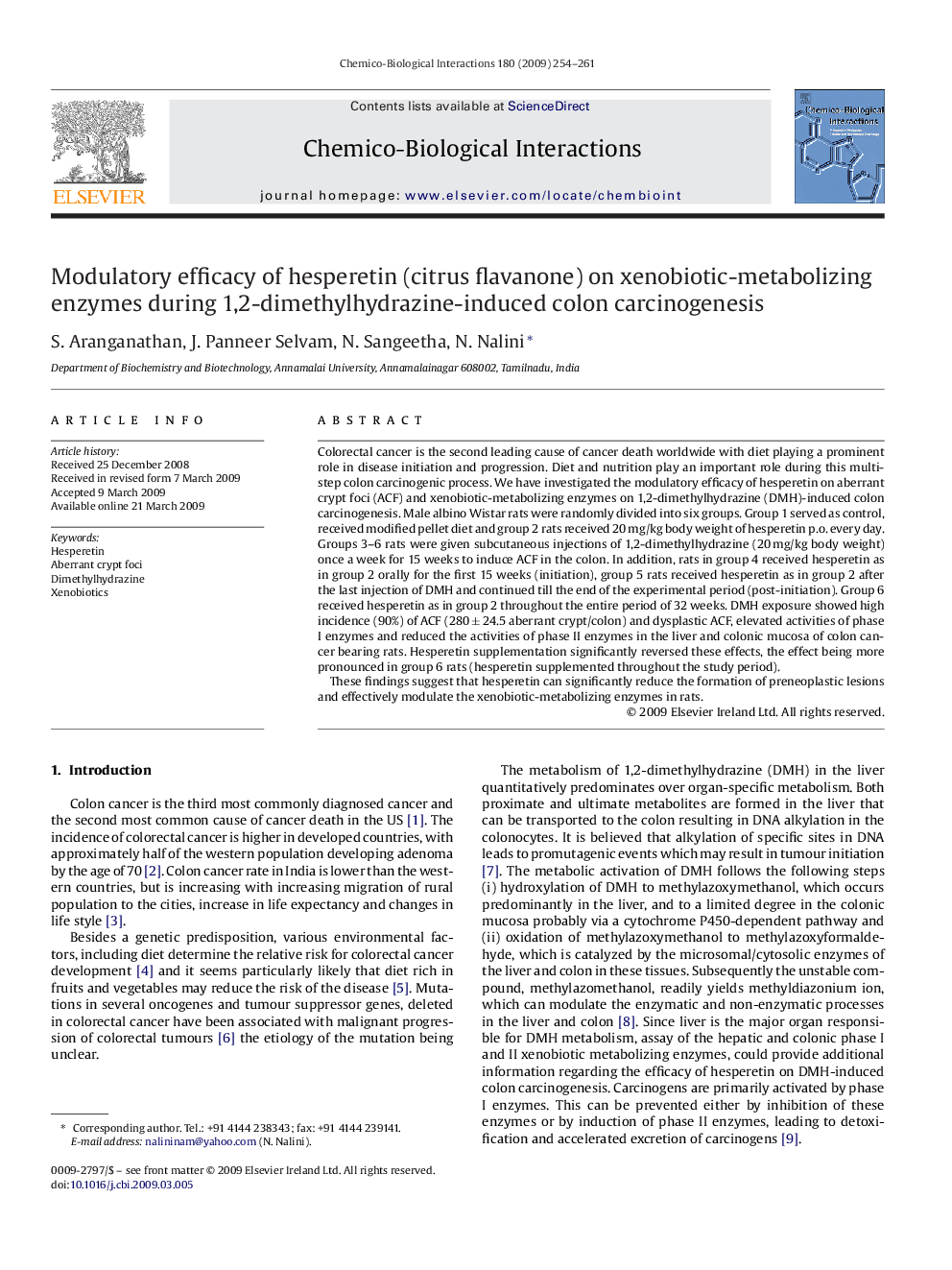| Article ID | Journal | Published Year | Pages | File Type |
|---|---|---|---|---|
| 2582125 | Chemico-Biological Interactions | 2009 | 8 Pages |
Colorectal cancer is the second leading cause of cancer death worldwide with diet playing a prominent role in disease initiation and progression. Diet and nutrition play an important role during this multistep colon carcinogenic process. We have investigated the modulatory efficacy of hesperetin on aberrant crypt foci (ACF) and xenobiotic-metabolizing enzymes on 1,2-dimethylhydrazine (DMH)-induced colon carcinogenesis. Male albino Wistar rats were randomly divided into six groups. Group 1 served as control, received modified pellet diet and group 2 rats received 20 mg/kg body weight of hesperetin p.o. every day. Groups 3–6 rats were given subcutaneous injections of 1,2-dimethylhydrazine (20 mg/kg body weight) once a week for 15 weeks to induce ACF in the colon. In addition, rats in group 4 received hesperetin as in group 2 orally for the first 15 weeks (initiation), group 5 rats received hesperetin as in group 2 after the last injection of DMH and continued till the end of the experimental period (post-initiation). Group 6 received hesperetin as in group 2 throughout the entire period of 32 weeks. DMH exposure showed high incidence (90%) of ACF (280 ± 24.5 aberrant crypt/colon) and dysplastic ACF, elevated activities of phase I enzymes and reduced the activities of phase II enzymes in the liver and colonic mucosa of colon cancer bearing rats. Hesperetin supplementation significantly reversed these effects, the effect being more pronounced in group 6 rats (hesperetin supplemented throughout the study period).These findings suggest that hesperetin can significantly reduce the formation of preneoplastic lesions and effectively modulate the xenobiotic-metabolizing enzymes in rats.
